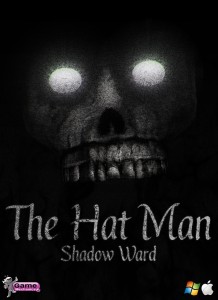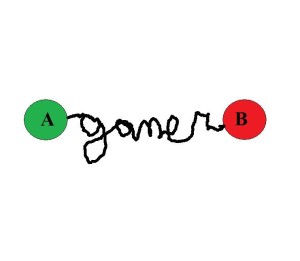Inheriting an Industry
by ted2112, HSM team writer
How important is it that the people who make our games or sell our games are gamers themselves?
Some might argue it doesn’t matter all: follow a trend or give them a good price and they’ll buy it from just about anybody. It’s just product, right? No different from a vacuum cleaner, or all-season tires.
Or is it?
There are also some who will argue — present company included — that having gamers actually make and sell our games is not only essential to the health of our industry, but to the future of the entire industry itself.
As we speak, the deck is being reshuffled; now, more than ever, the artists and dreamers themselves have been able to deliver their games straight into their fans’ hands. Mediums like Kickstarter and our own PlayStation Store can get you in on the ground floor of some pretty amazing things, while big video game retail companies like Game Stop and Game Crazy have been hanging by a thread or failed altogether. PlayStation Home, for example, has proven to be a great breeding ground for small developers that have flourished in this much more direct system — and in fact have taken it even further, branching out into other gaming mediums.
Do you know what these people all have in common? They are all gamers.
Let’s look at J. Paul Raines. He is the CEO of GameStop. Before he was put in charge of GameStop he helped run Home Depot and Advance Auto Parts, I can’t recall seeing anything remotely connected to gaming at these stores. Raines made $11.4 million dollars in 2012 — in fact, he owns about twelve-million in GameStop stock. Maybe that’s the reason why he keeps wages low and keeps closing stores; Wall Street loves that kind of stuff. Every time he closes retail locations, the stock price rises.
Is J. Paul Raines the kind of guy you want to buy a video game from? And why is it different from nails and windshield wipers?
 Let’s look at Game Mechanics. You may have run into the president of Game Mechanics, John Ardussi, in Home. One of his newest games is called The Hat Man: Shadow Ward. I was lucky enough to get into the pre-alpha of Hat Man via Kickstarter. Through feedback of a small community of game players and testers, I along with others hopefully helped in some small way shape the game itself. It’s a great game that is in every way up to par with their great Home content. In our little game forums I never once read feedback suggesting a way to keep shareholders happy.
Let’s look at Game Mechanics. You may have run into the president of Game Mechanics, John Ardussi, in Home. One of his newest games is called The Hat Man: Shadow Ward. I was lucky enough to get into the pre-alpha of Hat Man via Kickstarter. Through feedback of a small community of game players and testers, I along with others hopefully helped in some small way shape the game itself. It’s a great game that is in every way up to par with their great Home content. In our little game forums I never once read feedback suggesting a way to keep shareholders happy.
A game — made by gamers, delivered by gamers, tested by gamers — to please gamers. See the difference?
Let’s look at the breakout video game, Journey. thatgamecompany started with two people, both of them (you guessed it) gamers. Through the University of Southern California Interactive Media School, a great vision and a boatload of help from Sony — who was (and is) looking for indie developers, they created a gaming masterpiece. The PlayStation Store was looking to diversify into smaller, less expensive downloadable titles and in the process started a snowball effect on the way we develop and buy games. As crazy as it may have seen to the corporate world, the move was one of becoming more inclusive.
Let’s look at the Xbox One fiasco. When Microsoft rolled out the next gen console, it was all about TV and digital rights management. When the whole thing blew up in their faces they realized they created something that couldn’t be further from what console gamers are. They were smart enough to scramble and make some drastic changes before the launch of the Xbox One, but their reputation was severely damaged. Microsoft is a big enough company to absorb and survive this mistake, but it has illustrated how we no longer blindly follow whatever some big company thinks is good enough for us. It also put the world on notice that this is a gamer’s industry, first and foremost, and at the very least must be marketed to as such by people who have the ethos to back it up.
Lastly, let’s look at PlayStation Home. It’s not enough in Home to be passive; for Home to work it requires active gaming participation. We, the gamers, create for ourselves and the community at large the experience we want to see. If we like it, it becomes an essential part of Home; if we don’t, it is relegated and forgotten to the darkest depths of the navigator interface. We shape it; it’s ours, and that’s the point.
We are gamers, and for better or worse we have inherited this industry. I genuinely believe those who don’t get it will eventually fall by the wayside, whereas those who do will prosper — and it’s something you can’t fake. There is nothing wrong with making windshield wipers, but I feel it’s more about whose interests a company has in mind: do they follow the money, or do they follow their bliss? There is always a tension between creative endeavor and bottom-line profitability, particularly in a publicly-traded company, but without that core gaming enthusiasm, the industry doom itself to creative drought.
Mr. Raines, over at GameStop, once admitted in an interview — somewhat apologetically — that he sometimes likes to actually play a video game, just to see what is happening in the industry. We gamers are honored, sir, but might suggest the winds of change are blowing — and you might want to leave this to us and go back to selling nails and windshield wipers.
Share
| Tweet |



 Twitter
Twitter
Definitely looking forward to the full version of The Hat Man: Shadow Ward. I’m right on that pre-alpha list with you. And yes, its i portant for game developers to be gamers. Why? Because we know how we want a game to play and feel and may dip into our vast experience with other games to try and achieve the type of game play we are putting togeteher or trying to combine with other game play aspects. Games inspire game designs. While we may come up with unique ways of representing theose ideas, big or small, looking at solutions from the past can help shape the future if the elements are combined properly. Its exciting even when you finish coding something small that gives you feedback like simply making a character walk with the press of the d-pad or getting an animation to cycle properly. Even small things are exciting because the lead to bigger things down the road. Knowing that you were able to take a series of drawings, bring them to life and hand control over to a player is very satisfying. While gamers spend time solving our puzzles, we spend time uncovering the mysteries on how to create them and make them function properly. If we were not gamers ourselves, then why would we truly care about things like this? We play games to make games and we make games to play games. And when we are finished making our games, we also look forward to playing other developers games as well. Nothing is more satisfying than discovering the mysteries hidden within another persons world. Fast paced fun or thought provoking riddles, there is something for everyone when we have an understanding of what we are creating.
All I can say about all of this is….Agreed!! I wouldn’t want my local grocery store to try and grow the food they sell would I? It is no different here, you have to know the bones of it to appreciate what can be built and you have to have a love for gaming to understand where the flaws are and work to fix them and make the industry better for the trying. Nice read as always Ted.